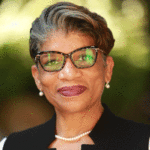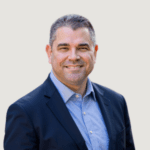The WashU Ombuds Resource
Independent. Impartial. Informal. Confidential.
If you experience any kind of workplace issue and are unsure what to do or who to talk to, the ombuds team is here for you.
We can help with any workplace issue, including:
|
|
In a confidential, off-the-record meeting, we will listen, explore different options for addressing your concerns, help you navigate relevant organizational resources, and coach you through how to effectively communicate your concerns to others should you choose to do so. We can also help facilitate informal discussions between two or more people when appropriate or work with groups experiencing conflict.
What is an ombuds? The term “ombuds” (pronounced “ahm–buhds”) comes from a Swedish term meaning “a person who has an ear to the people.” The ombuds team is an independent, impartial, informal, and confidential resource for WashU staff, postdocs, and graduate students. The ombuds team consists of three ombuds (LaCrisia “Cris” Gilbert, Scott Deyo, and Leslie Kellogg, see bios below) available to work with staff, postdocs, and graduate students to effectively manage, address, and surface university-related issues. The ombuds team supplements and does not replace formal administrative channels.
FAQs
For answers to frequently asked questions about the ombuds resource, please see this page: Frequently Asked Questions (FAQs).
Visitor Resources
Here’s a bank of resources, including articles, videos, and tip sheets, that can help you strategize and develop skills to overcome communication and conflict challenges.
WashU staff, postdocs, and graduate students should contact one of the ombuds below to discuss concerns and options for resolution.
 LaCrisia “Cris” Gilbert (cris-ombuds@mwi.org and 214-802-3339) is a member of MWI’s ombuds panel and has served as both an organizational and advocate ombuds. Her ombuds career started in 2012 as an advocate ombuds in the State of Texas, where she advocated for residents in long-term care and assisted living facilities, working closely with regulatory and individual facilities and their administrations. Utilizing over 30 years in the ADR field as a mediator, facilitator (specializing in Faith-based organizations), professor, and trainer, Cris was instrumental in resolving conflicts at all levels from family, civil court cases, to facility issues. Cris has served as an organizational ombudsman with a university, assisting faculty, staff, and students as well as training compliance investigators in mediation, conflict resolution, and DEI initiatives for the organization. She has also worked as a facilitator, assisting HR and Compliance with informal resolutions. She serves in Diversity, Equity, and Inclusion (DEI) on two campus initiatives (the President’s DEI Council and Social Justice, Equity, and Inclusion Council). Book a time to talk with Cris by sending an email to cris-ombuds@mwi.org or calling 214-802-3339.
LaCrisia “Cris” Gilbert (cris-ombuds@mwi.org and 214-802-3339) is a member of MWI’s ombuds panel and has served as both an organizational and advocate ombuds. Her ombuds career started in 2012 as an advocate ombuds in the State of Texas, where she advocated for residents in long-term care and assisted living facilities, working closely with regulatory and individual facilities and their administrations. Utilizing over 30 years in the ADR field as a mediator, facilitator (specializing in Faith-based organizations), professor, and trainer, Cris was instrumental in resolving conflicts at all levels from family, civil court cases, to facility issues. Cris has served as an organizational ombudsman with a university, assisting faculty, staff, and students as well as training compliance investigators in mediation, conflict resolution, and DEI initiatives for the organization. She has also worked as a facilitator, assisting HR and Compliance with informal resolutions. She serves in Diversity, Equity, and Inclusion (DEI) on two campus initiatives (the President’s DEI Council and Social Justice, Equity, and Inclusion Council). Book a time to talk with Cris by sending an email to cris-ombuds@mwi.org or calling 214-802-3339.
 Scott Deyo (scott-ombuds@mwi.org and 703-887-2687) has nearly three decades of experience in academia, non-profit, and federal sectors as an ombuds, mediator, and trainer. He is an expert at helping organizations build and sustain community-centered cultures that focus on people, their interconnected journey together, and their ability to accomplish great things through collaboration and dialogue. For a decade, Scott was a certified mediator and mentor through the Virginia Supreme Court, and has retained his Certified Organizational Ombuds credential since March 2010. Scott has mediated over 250 employment-related disputes, and as an ombuds has helped nearly 5,000 people explore resolution options for nearly 20,000 workplace issues. As a champion for advancing the ombuds field, Scott served as Chair of the Coalition of Federal Ombuds, where he sparked the creation of seven new ombuds programs, and serves as Chair of the Board of Certification’s Professional Practices Committee, which upholds the highest levels of professional standards of certified ombuds. Scott has a master’s degree from George Mason University’s Carter School for Peace and Conflict Resolution and a bachelor’s in psychology (major) and music (minor) from James Madison University. Contact Scott at scott-ombuds@mwi.org or 703-887-2687.
Scott Deyo (scott-ombuds@mwi.org and 703-887-2687) has nearly three decades of experience in academia, non-profit, and federal sectors as an ombuds, mediator, and trainer. He is an expert at helping organizations build and sustain community-centered cultures that focus on people, their interconnected journey together, and their ability to accomplish great things through collaboration and dialogue. For a decade, Scott was a certified mediator and mentor through the Virginia Supreme Court, and has retained his Certified Organizational Ombuds credential since March 2010. Scott has mediated over 250 employment-related disputes, and as an ombuds has helped nearly 5,000 people explore resolution options for nearly 20,000 workplace issues. As a champion for advancing the ombuds field, Scott served as Chair of the Coalition of Federal Ombuds, where he sparked the creation of seven new ombuds programs, and serves as Chair of the Board of Certification’s Professional Practices Committee, which upholds the highest levels of professional standards of certified ombuds. Scott has a master’s degree from George Mason University’s Carter School for Peace and Conflict Resolution and a bachelor’s in psychology (major) and music (minor) from James Madison University. Contact Scott at scott-ombuds@mwi.org or 703-887-2687.
 Leslie Kellogg (leslie-ombuds@mwi.org and 734-249-8109) is an IOA CO-OP® Certified Ombuds with MWI, bringing over fifteen years of experience as an ombuds, mediator, and executive coach. Her work is rooted in a deep commitment to fostering inclusive, respectful, and responsive academic environments. At Bastyr University, Leslie established the institution’s first International Ombuds Association (IOA) best practices Ombuds Office, serving students, faculty, and staff across two campuses and co-located clinics in Washington and California. In its first year, the office ranked in the top 10% of all campus resources in an institutional engagement survey and served 13% of the campus population. Leslie provided informal, confidential, impartial, and independent services, including individual conflict coaching, informal mediation, group facilitation, training, and systemic feedback to university leadership. She also authored the office’s founding charter and annual reports, and consulted on policy and process improvements to promote fairness and inclusion campus-wide. In addition to her university ombuds work, Leslie serves on the advisory board for the University of Washington’s Human Resources Certificate Program and is a mediation coach for the university. She is also an adjunct faculty member at Pepperdine University’s Straus Institute, where she supports the next generation of dispute resolution professionals. Leslie holds a Master’s in Dispute Resolution from Pepperdine Law School’s Straus Institute and the PHR certification from the Society for Human Resources Management. She previously served on the board of the King County Dispute Resolution Center and remains active in community and court mediation. Contact Leslie at leslie-ombuds@mwi.org or 734-249-8109.
Leslie Kellogg (leslie-ombuds@mwi.org and 734-249-8109) is an IOA CO-OP® Certified Ombuds with MWI, bringing over fifteen years of experience as an ombuds, mediator, and executive coach. Her work is rooted in a deep commitment to fostering inclusive, respectful, and responsive academic environments. At Bastyr University, Leslie established the institution’s first International Ombuds Association (IOA) best practices Ombuds Office, serving students, faculty, and staff across two campuses and co-located clinics in Washington and California. In its first year, the office ranked in the top 10% of all campus resources in an institutional engagement survey and served 13% of the campus population. Leslie provided informal, confidential, impartial, and independent services, including individual conflict coaching, informal mediation, group facilitation, training, and systemic feedback to university leadership. She also authored the office’s founding charter and annual reports, and consulted on policy and process improvements to promote fairness and inclusion campus-wide. In addition to her university ombuds work, Leslie serves on the advisory board for the University of Washington’s Human Resources Certificate Program and is a mediation coach for the university. She is also an adjunct faculty member at Pepperdine University’s Straus Institute, where she supports the next generation of dispute resolution professionals. Leslie holds a Master’s in Dispute Resolution from Pepperdine Law School’s Straus Institute and the PHR certification from the Society for Human Resources Management. She previously served on the board of the King County Dispute Resolution Center and remains active in community and court mediation. Contact Leslie at leslie-ombuds@mwi.org or 734-249-8109.
Contact
- Email: Cris at cris-ombuds@mwi.org, Scott at scott-ombuds@mwi.org, or Leslie at leslie-ombuds@mwi.org.
- Please use email for scheduling only. Email and voicemail cannot be guaranteed to be confidential, so do not include any details about your questions, situation, or concerns. If you share the best way to reach you, an ombuds will follow up to schedule an appointment.
- Confidential web form: If you have a university-related concern and would like to raise it in confidence, please feel free to fill out the web form below.
- If you would like to schedule an appointment with an ombuds team member, please include your preferred contact information and indicate which ombuds you would like to work with or whether you prefer to speak with the first available one. To share a concern anonymously, please do not include personally identifiable information. An anonymized summary of your comments may be shared with the organization unless you indicate otherwise on this form.
- Phone: Please contact Cris at 214-802-3339, Scott at 703-887-2687, or Leslie at 734-249-8109.
